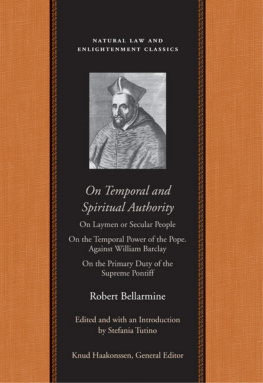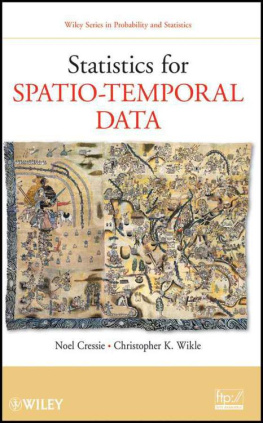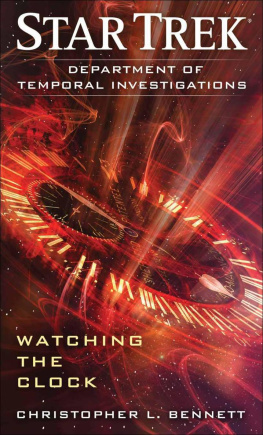First published 1997 by Garland Publishing, Inc.
This edition first published in 2021 by Routledge 605 Third Avenue, New York, NY 10017 and by Routledge 2 Park Square, Milton Park, Abingdon, Oxon OX14 4RN
Routledge is an imprint of the Taylor & Francis Group, an informa business
Copyright 1997 Renate Musan
All rights reserved. No part of this book may be reprinted or reproduced or utilised in any form or by any electronic, mechanical, or other means, now known or hereafter invented, including photocopying and recording, or in any information storage or retrieval system, without permission in writing from the publishers.
Notice: Product or corporate names may be trademarks or registered trademarks, and are used only for identification and explanation without intent to infringe.
Publishers Note The publisher has gone to great lengths to ensure the quality of this reprint but points out that some imperfections in the original copies may be apparent.
Disclaimer The publisher has made every effort to trace copyright holders and welcomes correspondence from those they have been unable to contact.
Library of Congress Cataloging-in-Publication Data
Musan, Renate, 1963- On the temporal interpretation of noun phrases I Renate Musan. p. cm. - (Outstanding dissertations in linguistics) Revision of thesis (Ph. D.)-Massachusetts Institute of Technology, 1995. Includes bibliographical references and index. ISBN 0-8153-2886-9 (alk. paper) 1. Grammar, Comparative and general-Noun phrase. 2. Grammar, Comparative and general-Temporal constructions. I. Title. II. Series. P271.M87 1997 415dc21
l97-12397
ISBN 13: 978-1-03-216584-4 (hbk) ISBN 13: 978-1-03-216731-2 (pbk) ISBN 13: 978-1-00-324965-8 (ebk)
DOI: 10.4324/9781003249658
TABLE OF CONTENTS
- Introduction
- The central question
- Previous results and counterevidence
- Preview
- Temporal Location of Individuals
- Life-time effects with individual-level predicates
- A pragmatic explanation of life-time effects
- Contextual relativization of life-time effects
- A comparison with Kratzers (1989b) proposal
- Conclusion
- Excursion: Definite and indefinite adverbials, restrictions, and scrambling
- Temporal Location of Situation Times
- Introduction
- The distribution of temporal dependence with noun phrases
- A scope-approach based on the cardinal/presuppositional distinction
- Stages
- Unrestrictive noun phrases that get temporally independent interpretations
- Constructions with adverbs of quantification
- Generic noun phrases
- Remarks on temporally independent noun phrases
- Conclusion
- More on stages
- On Temporal NP-Modifiers and Upper Limit Effects
- Introduction
- The distribution of in-modifiers
- In-modifiers as obligatory restrictors
- Interactions of in-modifiers and tense
- In-modifiers and upper limits
- Conclusion
- Appendix: How to interpret in-modifiers
- Conclusion and Speculations
- Results achieved in previous chapters
- Possible extensions I: Time and space
- Possible extensions II: Times and worlds
PREFACE
This book is a 1997 version of my 1995 MIT thesis. If I had had to write my thesis in 1997, I would have written some parts of it quite differently than I did in 1995--differently with regard to content as well as with regard to presentation. So one might expect the book to differ from the thesis significantly. But it does not--mainly for two reasons. The official reason is that the title of this series seems to call for a thesis basically in its original form. The other reason is that life goes on, and so do interests.
Thus, the changes compared to the original thesis are little. I was able to eliminate some errors and typos in various chapters, mainly on the basis of comments from Claudia Nohl and Arnim von Stechow. Thanks to them, to everybody else who provided comments or critique, and to Hamida Demirdache and Strang Burton, who by applying some of my results to other languages provided indirect comments.
Chapter II is a slightly revised version of my paper Tense, Predicates, and Life-Time Effects, which is a slightly revised version of Chapter II of my original thesis. Comments from Kai von Fintel, Irene Heim, Angelika Kratzer, and from two anonymous reviewers helped in preparing that version. The paper is going to appear in Natural Language Semantics and is printed here with kind permission from Kluwer Academic Publishers.
The appearance of the present version is largely due to the editorial help of Kristi Long. Thanks to her. And thanks to Claudia Maienborn and Claudia Nohl for not leaving me alone with the usual formatting and printing disasters.
Since I said above that I might have written parts of my thesis differently now, I want to add here that the acknowledgments of my thesis are not part of the parts that might appear in a different form now; they remain unaltered. I am still grateful to all the people and events mentioned there. And I am not yet embarrassed about any of the details mentioned (which might, of course, just be due to the fact that the five years are not over yet).
I want to thank all my old and new friends and colleagues in Berlin and all over Germany who made coming back easier.
ACKNOWLEDGMENTS
Acknowledgments are supposed to be embarrassing. You should definitely write something you'll regret having written five years from now.
- Alec -
When I came to MIT, I thought four years would be an incredibly long time. Now that its over, these four years seem to me to have been much too short. I have learned a lot during those years. Not only about linguistics and about what a good department should be like, but also about life. Although I havent forgotten that there were many downs in between the ups, I wouldnt want to have missed a single second of the years I had here. Especially my last year was much too short, somehow--and not for reasons that have to do with the finishing of my thesis. Thanks to everybody who helped making my fourth year what it was!
I want to thank all my teachers at MIT: Noam Chomsky, Kai von Fintel, Ken Hale, Morris Halle, Irene Heim, Jim Higginbotham, Michael Kenstowicz, Alec Marantz, Wayne ONeil, David Pesetsky, Roger Schwarzschild, Bob Stalnaker, Ken Wexler. Among them, there are, of course, some whom I want to thank particularly.
Kai von Fintel, my supervisor, is not only the first in alphabetical order, but also the most important one in every respect that is relevant for being a teacher and advisor. I dont even want to think about what it might have been like to write my thesis without Kais help, advice, encouragement, and unconditional support in all professional matters. Kai came to MIT at the beginning of my third year, when I was in the middle of finishing my semantics generals. Since then we have had countless appointments. Kai brought many phenomena to my attention, provided me with literature, improved my examples as well as the prose in between, sometimes pointed out to me that data I viewed as counterevidence to some aspect of my proposal were in fact additional evidence, and often suggested how to do things in a more elegant way. Also, I enjoyed listening to Kais classes, and I was lucky enough to TA for one of Kais introductory semantics classes.









